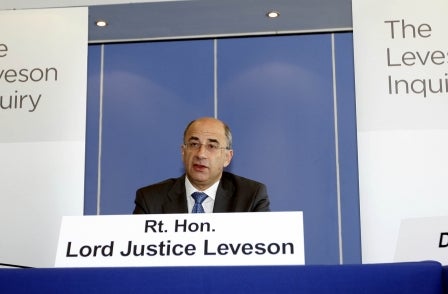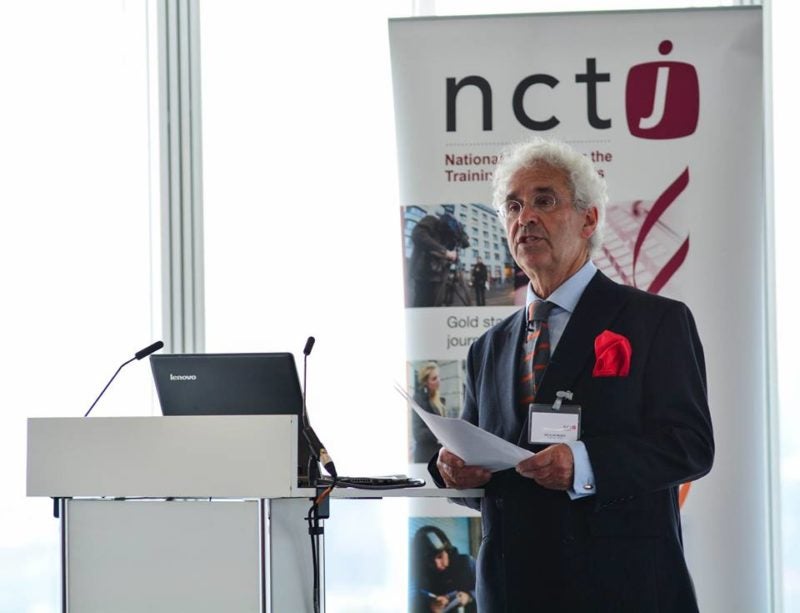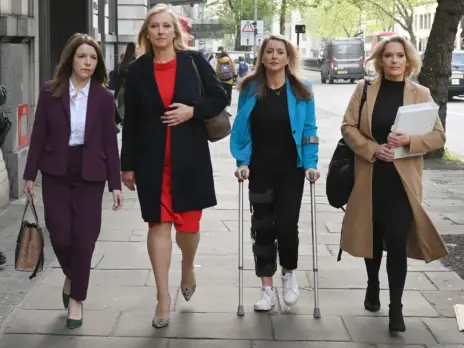
An external review of press regulator IPSO by a retired civil servant has concluded that it is independent, effective and largely compliant with the recommendations of the 2012 Leveson Report.
Sir Joseph Pilling is a former permanent secretary of the Northern Ireland Office who was commissioned by IPSO to carry out a six-month review of its activities to date.
He said: “In conducting this review I heard from a wide variety of people from complainants to the media.
“Everyone at IPSO has been scrupulous about not interfering in the review but we could have made no progress at all without a great deal of practical help.”
IPSO has been in operation for two years. It has been accused of being “sham regulator” by campaign group Hacked Off which contends that it is controlled by the very publishers it seeks to regulate.
But Pilling appears largely content that, so far, IPSO has managed to carry out its job effectively without interference from the news industry.
Hacked Off has condemned his 69-page report (available to download here as a “whitewash”.
Pilling notes that IPSO is entirely funded by news publishers (to the tune of more than £2m a year) and said that did compromise the regulator’s independence.
But he said: “Because of the need for funding, absolute or complete independence from both the industry and government is not possible.
“What is required of a regulator of the press is sufficient independence.”
He said that a four-year funding deal agreed with the news industry gave IPSO the independence it needs. But he recommended that the need for a new five-year funding deal should be written into the IPSO rules to safeguard its independence in future.
He noted that former press regulation body, the PCC, led a “hand to mouth” existence – where it once had to apply to the industry for money to paint a toilet.
Pilling found the Editors’ Code was subject to little criticism and he accepted that the committee which draws it up should be largely made up of serving editors.
But he said it was wrong that one of the three “independent” members of the code committee also sits on the IPSO complaints committee.
He also recommended that there should be time limit of two three-year terms when it comes to serving on the code committee.
Chairman of the code committee, Daily Mail editor Paul Dacre (who has been on it for eight years) has been exempted from this rule.
Pilling noted that a report on the committee’s 2012 consultation about revising the code was never published. He recommended that in future: “A summary report of any such consultation should also be made available to the public.”
Dacre’s code committee said it will consider the recommendations and its next meeting (it meets once or twice a year).
IPSO currently allows newspapers 28 days to deal with complaints themselves, before getting involved. Pilling said this time limit may been to be reduced to 21 or 14 days.
He noted that former Mail on Sunday editor is a member of the IPSO complaints committee and “made a distinct contribution” in the two meetings he witnessed “because of his experience as an editor”.
But he said: “He and other industry members of the Complaints Committee seemed to me to display no bias in favour of the publication. For example, in a case I observed, Peter Wright found himself in a minority arguing that there had been a breach of the code.”
He said: “I recommend that IPSO should continue to work to ensure that the Complaints Committee includes individuals with recent day-to-day experience of the practical application of the Editors’ Code.”
The IPSO complaints committee has a majority of independent members, not connected with the news industry (and no serving editors).
Pilling said he believed upheld IPSO complaints are “taken very seriously by the industry, and by editors specifically”.
And he noted that IPSO has ruled 13 times that corrections should feature on the front page.
However, he said that IPSO’s rule that corrections should have “due prominence” remained “an elusive concept” and he said more guidance was needed from IPSO on what that means.
Currently, IPSO rulings can only be challenged on process grounds (rather than substance).
Pilling recommended that this rule should be changed meaning that complainants can seek a review of an IPSO ruling simply because they think it has got it wrong (as is the case with the Advertising Standards Authority).
IPSO has the power to launch standards investigations and levy fines of up to £1m, but has never done so. Pilling did not see IPSO’s failure to launch such a probe as a failing.
He said: “Given the significance of a standards investigation IPSO ought not to feel under pressure to launch one. It would be a serious mistake to launch a standards investigation on relatively flimsy grounds. It ought to be exceptional.
“One point I would make is that the industry are very concerned about the threat of a standards investigation and take it extremely seriously. They see it as inevitable that one will be launched shortly and each publication was very keen for it not to be them under investigation.”
Pilling said that all member publishers of IPSO should publish data about the number of complaints they have received which were not dealt with by IPSO – and the outcome.
One of Pilling’s main areas of criticism was the libel and privacy disputes arbitration scheme set up by IPSO (as recommended by Leveson).
Claimants must pay £300 (plus VAT) to start arbitration and then a further £2,500 (plus VAT) to get a decision (as well their own legal fees).
Publishers who spoke to Pilling told him that “few, if any, cases would be appropriate for arbitration”.
He said that should few, or no cases, proceed to arbitration IPSO should consider lowering the fees.
In an appendix to his report, Pilling said that IPSO largely complies with the main recommendations from Sir Brian Leveson in his 2012 report on the future regulation of the press.
IPSO itself has never claimed to Leveson-compliant. But in the main areas around effectiveness and independence, Pilling said IPSO does comply with Leveson.
He said that it failed to comply with Leveson with regards to its arbitration scheme, its failure to provide detailed guidance about the public interest and its failure to attract all the UK’s significant news publishers.
Major titles which have opted out of press regulation include the following:The Guardian, Observer, Independent, Financial Times, Evening Standard, Private Eye, BuzzFeed, Yahoo.com and the Huffington Post.
IPSO has yet to reveal whether it will adopt all or any of the Pilling recommendations.

IPSO chairman Sir Alan Moses
IPSO chairman Sir Alan Moses said: “Sir Joseph’s review is a thorough examination of IPSO’s first two years in operation and I very much welcome it and thank him for his serious and scholarly analysis.
“I am pleased that he has highlighted the important achievements IPSO has made and the high quality assistance our staff offer to the public. In the areas where he has suggested we could improve or do things differently, we will seek to do so if necessary and will publish a full response.”
Hacked Off joint executive director Dr Evan Harris said: “This review is a predictable whitewash, and is rendered worthless by its failure to examine the real power behind IPSO: the secretive Regulatory Funding Company. The RFC, which is wholly run by the very publishers that IPSO purports to regulate ‘independently’, controls IPSO’s rules and has significant influence over its appointments.
“History is repeating itself: before its incompetence was exposed by the Leveson Inquiry, the Press Complaints Commission commissioned similar external reviews which pronounced in similar terms about the PCC’s independence and effectiveness. It is difficult to take seriously any review which denies industry influence over IPSO when both the Associate Editor of The Sun and editor of The Times were involved in IPSO’s initial appointments procedure, and when partisan newspaper executives serve on all IPSO committees.
“The review rightly identifies erosion of public trust in effective press regulation as a serious problem, yet IPSO attempts to rescue its own failing reputation by handpicking and paying a retired civil servant to write a glowing report according to terms of reference drawn up by IPSO itself. The press marks its own homework and IPSO sets its own exams.
“Real public trust will only be fostered through the genuinely independent process recommended by Lord Justice Leveson and established by Parliament through a Royal Charter. If IPSO wishes to earn that trust, it should subject itself to scrutiny by the Press Recognition Panel, as Parliament intended, rather than engage in what is manifestly a bogus process.”
Email pged@pressgazette.co.uk to point out mistakes, provide story tips or send in a letter for publication on our "Letters Page" blog






